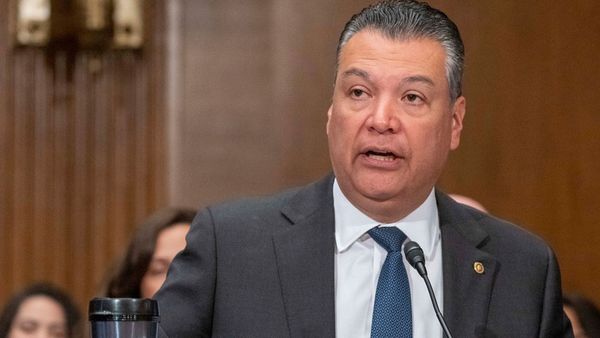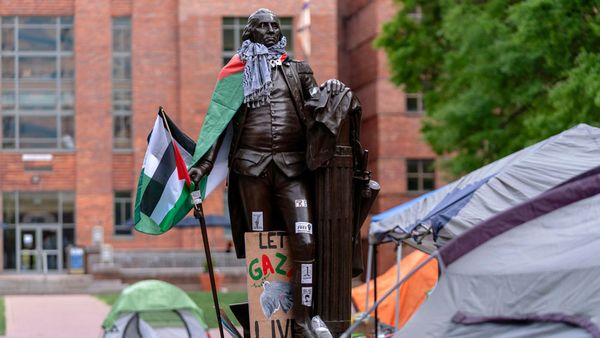July 14, 2013
Marriage Equality: Work Remains
Kilian Melloy READ TIME: 6 MIN.
Despite the U.S. Supreme Court striking down California's Proposition 8 same-sex marriage ban and a key section of the federal, anti-gay Defense of Marriage Act, much work remains nationally to ensure marriage equality.
There are still 37 states where same-sex couples can't legally wed. Among other problems, that means many couples may still miss out on family medical leave, Social Security survivor benefits, and other benefits.
But the tide is turning, some advocates said.
"I think there's a dramatically changed landscape, and as we look at the next wave of states, I also think we're going to see an increase in support for marriage equality throughout the country," Geoff Kors, senior legislative and policy strategist for the National Center for Lesbian Rights, told the Bay Area Reporter. "Based on the momentum coming out of these two historic decisions, the landscape is going to be changing very rapidly."
NCLR has been involved in the same-sex marriage movement for years, and both Kors, when he was executive director of the LGBT lobbying group Equality California, and NCLR Executive Director Kate Kendell served on the No on Proposition 8 executive committee. That group worked unsuccessfully to defeat the anti-gay measure, which California voters passed in 2008. Last month's Supreme Court decision upheld a lower court ruling that Prop 8 is unconstitutional. After another federal court lifted a stay on that decision, same-sex marriages resumed last month in the Golden State.
Kors now is helping NCLR on "working with various state groups on a variety of issues," with much of the focus on marriage, domestic partnerships, and non-discrimination. He also serves on the board of directors of Freedom to Marry Action, an affiliate of the national Freedom to Marry organization.
Many see the repeal of the remainder of DOMA as crucial. In a statement Tuesday, July 9 announcing Freedom to Marry's next phase in its national strategy through 2016, Evan Wolfson, the group's president, said, "The key to winning is, as it has always been, that when we get to the Supreme Court with the next marriage cases, we go with more states and more support creating the climate for the justices then to do the right thing.
Kors pointed to three states that he thinks will progress on marriage equality "very soon:" Illinois, New Jersey, and Hawaii.
Illinois
By this fall, the Illinois House is expected to vote on a marriage bill that already passed the Senate. Governor Pat Quinn supports the proposal.
"There's a real possibility of passing marriage equality in Illinois this year," Kors said.
On its website, Equality Illinois explains a key decision the Supreme Court announced June 26 and how it may still allow states to discriminate against same-sex couples.
"Even though Section 3 of DOMA was found to be unconstitutional, the constitutionality of Section 2, which purports to allow states to decide whether to recognize same-sex marriages from other jurisdictions, remains unclear," the site says. For now, Illinois will continue recognizing out-of-state marriages as civil unions.
"We are working with our national partners and federal administration officials to ensure that all marriages that were validly performed are recognized by the federal government regardless of where the couple now resides. Some federal benefits may be available to you right away," the Equality Illinois site says.
In 2012, advocates filed lawsuits seeking to win marriage equality in Illinois and have asked for an immediate ruling.
New Jersey
Same-sex couples in New Jersey, which also allows only civil unions, face a similar dilemma, since another section of DOMA allows individual states to discriminate against them.
The New Jersey Legislature passed a marriage equality bill in 2012, but Republican Governor Chris Christie vetoed it.
"Obviously the court's historic ruling on the Defense of Marriage Act was a monumental moment for our movement, but here in New Jersey, it was bittersweet," T.J. Helmstetter, a spokesman for Garden State Equality, said in an interview. In New Jersey, couples in civil unions still won't be afforded the 1,138 rights and benefits that are expected to go to couples in California and other states where same-sex marriage is now legal.
"It puts New Jersey couples in a precarious situation," Helmstetter said. If a couple married in a neighboring state, "they're in a situation where every time they cross the Hudson River or the Delaware River to return home from work, they may lose certain rights and benefits every evening."
Helmstetter said marriage advocates are three votes away from the 27 they need in the Senate and 10 votes from the 54 in the Assembly for a veto override.
Advocates have also been pursuing marriage equality in New Jersey through a lawsuit. Since the Supreme Court overturned Section 3 of DOMA, attorneys have requested an immediate ruling in the Garden State suit. A judge will hear oral arguments in August.
Hawaii
Hawaii is another state that has yet to see full equality for same-sex couples, although legislators have been pushing for that. NCLR's Kors said the state "is potentially going to move forward legislatively" in the next year.
Equality Hawaii Executive Director Don Bentz said, "Our hope is the Legislature is going to address [marriage equality] either in a special session or in the upcoming 2014 session."
A lawsuit seeking equality has also been filed in Hawaii.
In a statement released after the Supreme Court's rulings last month, Hawaii Governor Neil Abercrombie pointed to the lawsuit, in which he argues, "the Constitution's equal protection clause requires same-sex marriage in all states, including Hawaii." The lawsuit is pending in the 9th U.S. Circuit Court of Appeals.
I believe my position to support a constitutional right to same-sex marriage in Hawaii and elsewhere was given a substantial boost" by the court's rulings, Abercrombie stated. "I will continue to work to assure justice and equality for all.
Other States
Oregon is another place to watch. Kors said the state is "very likely to be moving forward with a ballot measure" to legalize same-sex marriage in 2014.
Oregon law currently excludes loving and committed same-sex couples from marriage, but we are in the process of changing that, said Peter Zuckerman, spokesman for Oregon United for Marriage, in an email.
Beginning July 20, supporters will work to collect the 116,284 signatures within a year to get their proposal on the November 2014 ballot.
"We've heard from lots of couples in Oregon who are legally married in California and who are looking forward to having their marriage recognized in their home state," Zuckerman said.
By 2016 Freedom to Marry plans to end federal marriage discrimination through a full repeal of DOMA, among other goals. The group announced this week that it's investing $500,000 in state marriage fights, including $250,000 in the Oregon campaign.
The group is working to win Hawaii, Illinois, New Jersey, and Oregon by 2013-2014 and preparing to win more states after that.
Kors said the same-sex marriage issue could also be decided "in the very short term" in New Mexico. However, he said, "Although the Legislature can act, the governor there is not supportive at this point."
A lawsuit was filed earlier this year seeking the right for same-sex couples to marry in New Mexico, one of the few states that does not have a constitutional ban.
Last week, the American Civil Liberties Union of New Mexico, NCLR, and others filed a writ of mandamus with the state's Supreme Court seeking a ruling on whether same-sex couples can marry there. (A writ of mandamus is a special legal action that permits New Mexico's top court to resolve an issue without waiting for the lower courts to rule, advocates explained in a statement.)
"The writ also asks the court to clarify that New Mexico respects the marriages of same-sex New Mexico couples who married in another state, which is necessary to ensure that those couples qualify for all of the federal programs that are now available to married same-sex couples" as a result of the U.S. Supreme Court's DOMA ruling, the statement said.
Those programs address areas ranging from family medical leave to Social Security survivors benefits. If the state's Supreme Court declines to hear the writ petitions, the lawsuit will proceed, according to advocates.
Challenges
"I think the biggest challenge is going to be to continue to raise the necessary resources to do the work," Kors said. That work includes educating people and working to elect state legislators and governors "who support marriage equality in places where we can move forward legislatively," he said.
Kors also said "a real challenge" will be getting rid of the rest of DOMA by passing the Respect for Marriage Act, which he said will be "a challenge, given the current Republican control of Congress." The Respect for Marriage Act, authored by Senator Dianne Feinstein (D-California) would "ensure wherever you moved or traveled," one's marriage rights would be protected, he said.
Among other things, what's needed to assist people in states where marriage equality isn't yet a reality is money. Whether it's through making donations, grassroots activism, or other means, "It's critical for us to finish the job of LGBT equality as fast as possible," Kors said.
In an email, Wolfson said what's needed from people in California and other states includes continuing personal conversations to educate people on marriage equality and contributing time and money.
"We have the momentum and the winning strategy; we just have to keep at it and get the job done," he said.
Kilian Melloy serves as EDGE Media Network's Associate Arts Editor and Staff Contributor. His professional memberships include the National Lesbian & Gay Journalists Association, the Boston Online Film Critics Association, The Gay and Lesbian Entertainment Critics Association, and the Boston Theater Critics Association's Elliot Norton Awards Committee.




